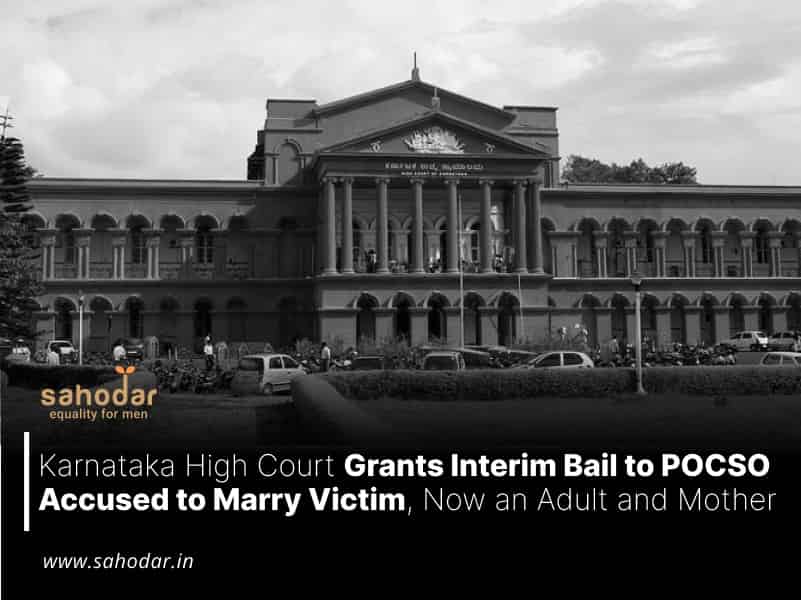The Court said that the order was being passed taking into account the peculiar circumstances in the case including the fate of the mother who would have to raise the child at a tender age.
The Karnataka High Court has recently approved a 15-day interim bail for a man accused under the POCSO Act. This decision allows him to marry the victim, who has since come of age and become a mother to their child.
Justice M Nagaprasanna, sitting as a single judge, justified the order by considering the unique circumstances of the case, especially regarding the welfare of the mother who now faces the responsibility of raising the child at a young age.
“In the peculiar circumstances, as the mother has to bring up the child at this tender age, looking at the fate of the mother and the child who are in dire straits, I deem it appropriate to redeem the grievance of the families by permitting the petitioner to get married to the victim, who is now more than 18 years old and for the purpose of the said marriage, I deem it appropriate to grant the petitioner interim bail in exercise of jurisdiction under Section 482 of the Cr.P.C. enabling the petitioner to come out and get married to the victim. This course is taken, owing to the peculiarity obtaining in the facts and circumstances of the case at hand, as the mother has to bring up the child,” the Court said.
The Court added that the newborn is unaware of the situation and should not face any shame in the future.
“Therefore, to protect the interest of the child and also responsibility of the mother in bringing up the child, this direction is found necessary to be issued,” the order stated.
The accused challenged the proceedings pending before the Additional District & Sessions Judge in Mysore.
The proceedings stemmed from a case involving charges under Section 376(2)(n) of the Indian Penal Code and Sections 5(L), 5(J)(II), and 6 of the POCSO Act.
According to the complaint filed by the victim’s mother, it was alleged that her daughter and the accused petitioner were in a romantic relationship in School.
The complaint further stated that the petitioner and her daughter frequently met and on February 15, 2023, he took the complainant’s daughter to an isolated place on a bike and sexually assaulted her.
As per the order, the victim was 16 years and 9 months old at the time of the incident.
Following an investigation, the police filed a charge sheet against the accused who has since been in judicial custody. It was noted by the Court that the victim later gave birth to a child.
The counsel for both parties argued that the petitioner and the victim were in love but the parents had intervened in their relationship.
It was argued that a child, now a year old, was born as a result of the sexual act between both parties.
It was submitted that the petitioner wished to marry the victim to ensure that she and the child were not left in a difficult situation. Therefore, the petition was filed seeking to compound the offence due to the compromise.
The Court noted that the victim had since attained majority and the DNA report proved that the accused was the father of the child.
“The victim is now aged 18 years and, therefore, the marriage is what is seen as the necessary solution by the members of the families in the peculiar facts of the case. This Court directed production of a report of DNA that was conducted at the time of birth of the child. The report of the DNA is placed before this Court. The report depicts that the petitioner is the biological father and the victim is the biological mother of the child. Therefore, the child is born from the sexual act between the two is not in dispute.”
In light of these circumstances, the Court granted interim bail to the accused.
“The petitioner shall be released on grant of interim bail which will be operational from 17-06-2024 upto 03-07-2024. The petitioner shall return to the goal on the evening of 3rd July, 2024. The Certificate of evidence of marriage shall be placed before the Court on the next date of hearing.”

